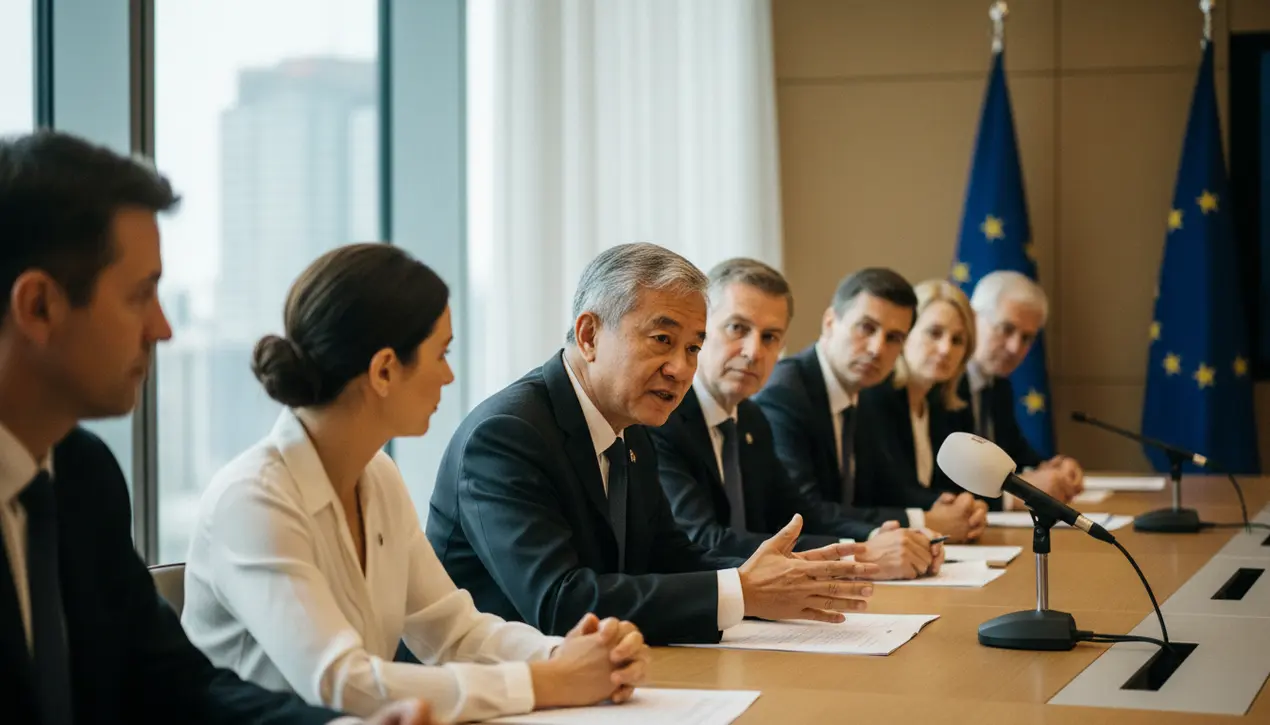
PoliticsdiplomacyBilateral Relations
Thailand urges EU to balance power in ASEAN region.
RO
Robert Hayes
18 hours ago7 min read3 comments
In the grand geopolitical theater, where the ambitions of superpowers are the principal actors, the strategic maneuvers of middle powers often provide the most telling commentary on the state of the global order. Thailand’s Foreign Minister, Sihasak Phuangketkeow, speaking to Euronews from the sidelines of an Indo-Pacific meeting in Brussels, articulated a nuanced position that resonates with historical precedents of balance-of-power politics.His assertion that the European Union’s presence in the ASEAN region serves as a crucial counterweight to the duopoly of the United States and China is not merely a diplomatic pleasantry; it is a sophisticated calculation reflective of Southeast Asia's precarious position. For nations like Thailand, Vietnam, Indonesia, and Singapore, the intensifying Sino-American rivalry presents an existential dilemma, forcing a delicate dance between economic necessity, embodied by China's immense trade and infrastructure investments through the Belt and Road Initiative, and strategic security, often underwritten by the enduring, if sometimes inconsistent, US security guarantee.The EU, in this context, is perceived not as a replacement for either, but as a vital third force—a normative, rules-based actor whose increased engagement in trade, security patrols in the South China Sea, and developmental aid introduces a layer of complexity and choice for ASEAN members. This is reminiscent of the classic British foreign policy doctrine of preventing the dominance of any single continental power, a strategy that maintained a relative equilibrium for centuries.Minister Phuangketkeow’s comments signal a conscious effort by ASEAN to architect a multipolar regional architecture, thereby enhancing its own agency and preventing a binary choice that would inevitably compromise its cherished principle of centrality. However, this strategy is fraught with challenges.Brussels itself is often divided on its strategic priorities towards China, vacillating between a ‘systemic rival’ framing and a critical partnership, while its capacity for meaningful military deterrence in the Pacific remains limited. The success of this balancing act will depend on the EU's ability to translate its economic weight into coherent and reliable strategic influence, a task that has historically proven difficult for the consensus-driven bloc. For Thailand, a nation with a long history of adeptly navigating great power politics to preserve its sovereignty, this call for a stronger EU role is a calculated move to ensure that the future of the Indo-Pacific is not dictated solely from Washington or Beijing, but shaped by a broader, more diverse concert of powers, a modern-day application of a timeless geopolitical truth.
#ASEAN
#European Union
#Thailand
#diplomacy
#balance of power
#geopolitics
#featured
Stay Informed. Act Smarter.
Get weekly highlights, major headlines, and expert insights — then put your knowledge to work in our live prediction markets.
Related News
Comments
Loading comments...
© 2025 Outpoll Service LTD. All rights reserved.